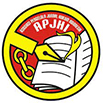Criminal Law Policy About Monetary Sanction In The Bill of Penal Code OF Indonesia
Abstract
Criminal law policy about criminal punishment is one of the most important substances in Criminal law making and reform. Even, the regulation of criminal punishment is assumed as one of indicators in measuring the development and civilization of a nation. The current Penal Code of Indonesia (PCI) or KUHP that is the heritage of Dutch colonial is much influenced by Classical School and placed imprisonment as priority. The consequence is that in one hand the high rate of imprisonment and over-capacity in the prison on the other hand. Such a condition will result in problems such as the diffulties conducting rehabilitation and providing the budgeting. In its development, modern criminal law, especially from the the idea of utilitariansme, tries to find various alternatives to imprisonment, especially Monetary Punishment. Even though PCI has adopted regulation on monetary punishment, the existing system still places imprisonment very dominant. The Indonesian legislator which is currently hearing the Bill of PCI to replace the current PCI should foster the function of monetary punishment so that it results in the utility for the people. This article is discussing about how criminal law policy about the monetary punishment regulated in Bill of PCI. This study applies normative legal research and put stressing in (content analysis). The result of this study shoes that Bill of PCI has not yet placed monetary punishment as first priority in criminal punishment. There are some regulations that make it is not possible for monetary punishment is more selected in criminal enforcement. Therefore, Bill of PCI should be more accommodative in optimizing financial punishment in realizing criminal punishment for the benefit of the people.
Keywords
Full Text:
PDFReferences
BOOKS
Arief, Barda Nawawi.. (2011). Tujuan dan Pedoman Pemidanaan. Semarang : Badan Penerbit Magister.
___________. (2008). Masalah Penegakan Hukum dan Kebijakan Hukum Pidana dalam Penanggulangan Kejahatan, Jakarta : Kenanga.
Cooter, Robert., Thomas Ulen. (2004). Law and Economy, Boston : Pearson Education Inc.
Fletcher, George P.. (1998). Basic Concept of Criminal Law, New York : Oxford University Press.
Friedmann, Lawrence M. (2011). The Legal System : A Social Science Perspective, Terjemahan oleh M. Khozim. Bandung : Nusamedia.
H. L. Packer, H.L., (1968). The Limits of Criminal Sanction. Califormia : Stanford University Press.
Institute for Criminal Justice Reform. (2015). Melihat Rencana Kodifikasi dalam RKUHP, Tentang Upaya Pembaruan Hukum Pidana di Indonesia. Jakarta : ICJR.
Jeremy Bentham. (2000). An introduction to the Principles of Morals and Legislation 1781, dalam Kicthener, Botoche Book. Tersedia : https://socialsciences.mcmaster.ca › econ › ugcm › bentham › morals,
M., Mahfud MD. (2010). Membangun Politik Hukum, Menegakkan Konstitusi, Jakarta : Rajawali Pers.
Moeljatno. (1985). Fungsi dan Tujuan Hukum pidana Indonesia. Jakarta : Bina Aksara.
Nicholas, Mercuro. and Steven G. Medena. (1999). Economics and the Law, From Postner to Post Modernism, New Jersey : Princeton University Press.
Sahetapy, Elfina L., A Suhartati Lukito, A Suhartati and Lisanawati. (2017). Tackling Finacial Crimes, Various International Perspective. Surabaya : Genta Publishing.
Supanto. (2010). Kejahatan Ekonomi Global dan Kebijakan Hukum Pidana. Bandung : PT Alumni.
Sutrisno, Endang. (2011). Bunga Rampai Hukum dan Globalisasi, Bandung : Genta Press.
JOURNAL
Diah Pawesti Maharani. A Logical Character of Indonesian Adat Law Based on Paul Schulte’s Perspective, Digital Paul Schoolmen Project, University of Amsterdam, available at: https://www.paulscholten.eu/research/article/a-logical-character-of-indonesian-adat-law-based-on-paul-scholtens-perspective-2/.
Eva Achjani Zulfa. Pergeseran Paradigma Pemidanaan di Indonesia, Jurnal Hukum dan Pembangunan. Volume 1 Nomor 1 Tahun 2006.
Firedman, Brittanydan., Marry Pattilo. 2019. Statutory inequality: The Logic of Monetary Sanction in State Law, The Russell Sage Foundation Journal of the Social Sciences February 2019, 5 (1) DOI: https://doi.org/10.7758/RSF.2019.5.1.08.
Hamzah, Yoserwan. Penerapan Fungsi Sekunder Hukum Pidana oleh Aparatur Penegak Hukum dalam Hukum Pidana Ekonomi. Nagari Law Review, Volume 1 Nomor 1 Tahun 2017.
Meyer, Joel. (1968). Reflection to some Theories of Punishment. Journal of Criminal Law and Criminology, Volume 59 Nomor 4. p. 595. Available at https://pdfs.semanticscholar.org.
Marbun, Rocky. Grand Design Politic Hokum Piano Dan System Hokum Piano Indonesia Berdasarkan Pancasila dan Undang-Undang Dasar Negara Republik Indonesia 1945. Pajajaran Jurnal Ilmu Hukum, Volume 1 Nomor 3 Tahun 2014.
Nani Mulyati, Topo Santoso dan Elwi Danil. A Philosophical Analysis To Uncover The Meaning And Terminology Of Person In Indonesian Criminal Law Context. Nagari Law Review, Volume 1 Nomor 1 Tahun 2017.
Padityo, Randy. Menuju Pembaruan Hukum Pidana Indonesia: Suatu Tinjauan Singkat, Jurnal Legislasi Indonesia, Jakarta : BPHN, Volume 14 Nomor 2.
Ridwan. Kebijakan Formulasi Hukum Pidana dalam Penanggulangan Tindak Pidana Korupsi, Kanun Jurnal Ilmu Hukum ,Fakultas Hukum Unsyiah, No. 60 Tahun XV Tahun 2013.
Rifai, Eddy. An Analysis of the Death Penalty in Indonesia Criminal Law, Sriwijaya Law Review, Volume 1 Nomor 2 Tahun 2017.
Ruggiero, Vincenzo. An Abolitionis View of Restorative Justice. Internationall Journal of Law, Crime and Justice Volume 39 Nomor 2 Tahun 2017.
WEBSITE
Brittany Firedman dan Marry Pattilo (2019). “Statutory inequality : The Logic of Monetary Sancton in State Law”, The Russell Sage Foundation Journal of the Social Sciences February 2019, 5 (1) 174-196; DOI: https://doi.org/10.7758/RSF.2019.5.1.08. p. 174 accessed on 9 September 2019.
Diah Pawesti Maharani. (2016). A Logical Character of Indonesian Adat Law Based on Paul Scholten’s Perspective. Digital Paul Scholten Project. University of Amsterdam. Available at: https://www.paulscholten.eu/research/article/a-logical-character-of-indonesian-adat-law-based-on-paul-scholtens-perspective-2/ accesed on 10 September 2019.
DPR Setujui Daftar Prolegnas Dengan Catatatan, http://www.hukumonline.com/berita/baca/lt54d8993156cb3/dpr-setujui-daftar-prolegnas-dengan-catatan accessed on 10 Januari 2016.
Jeremy Bentham, 2000, An introduction to the Principles of Morals and Legislation 1781, dalam Kicthener, Botoche Book. https://socialsciences.mcmaster.ca › econ › ugcm › bentham › morals. p. 141 accessed on 10 Septembet 2019.
Pembahasan RUU KUHP dan PKS Diperpanjang, https://www.cnnindonesia.com/nasional/20190725122505-32-415368/pembahasan-ruu-kuhp-dan-pks-di-dpr-diperpanjang accessed on 26 September 2019.
Mudzakkir. (2008). Perencanaan Pembangunan Hukum Nasisional Bidang Hukum Pidana dan Sistem Pemidanaan Politk Hukum dan Pemidanaan. Jakarta : BPHN. p. 82 available at:
https://www.bphn.go.id › documents › pphn_bid_polhuk&pemidanaan.
DOI: http://dx.doi.org/10.28946/sc.v27i1.809
Refbacks
- There are currently no refbacks.

This work is licensed under a Creative Commons Attribution-NonCommercial 4.0 International License.
--------------------------------------------------------------------------------------------------------------------------------------------------------------
SIMBUR CAHAYA : Jurnal Ilmiah Ilmu Hukum
ISSN: 1410-0614 (Print)
e-ISSN: 2684-9941 (Online)
Published by :
Fakultas Hukum Universitas Sriwijaya
Jl. Srijaya Negara, Bukit Besar, Ilir Barat I, Palembang, 30139
Telepon : +62711-580063 Fax : +62711-581179
Email : simburcahaya@fh.unsri.ac.id
Website : http://journal.fh.unsri.ac.id/index.php/simburcahaya

Jurnal Simbur Cahaya (SC) is licensed under a Creative Commons Attribution-ShareAlike 4.0 International License.

1.png)













